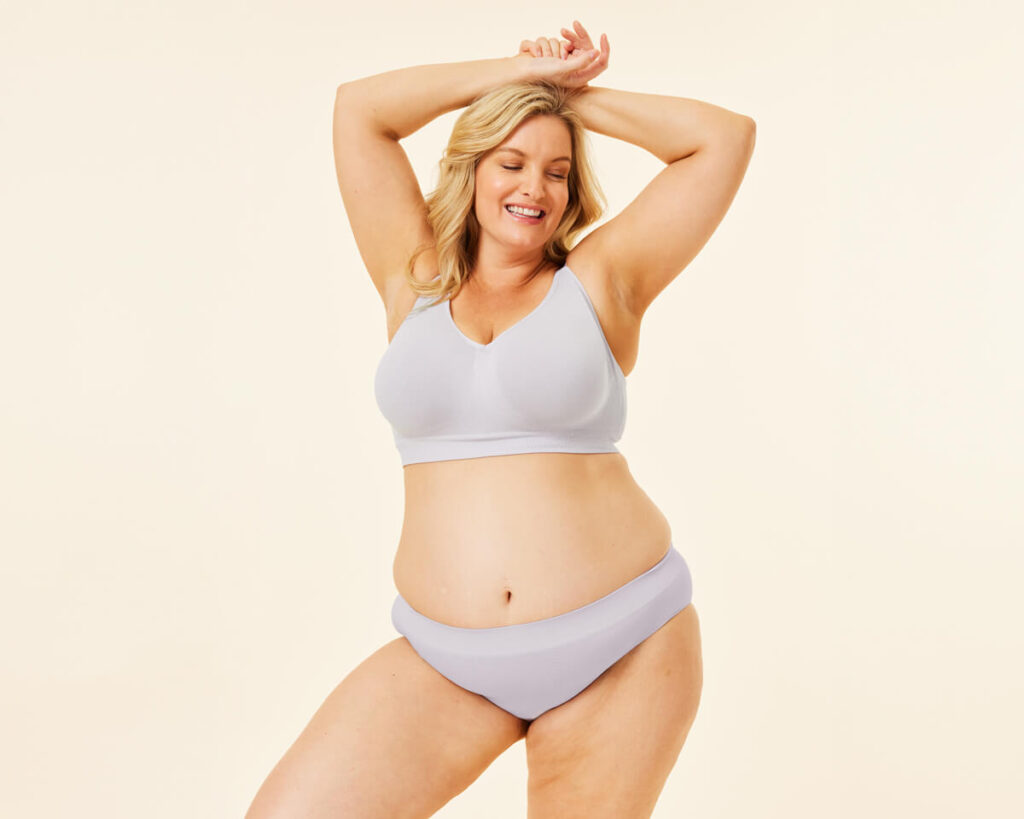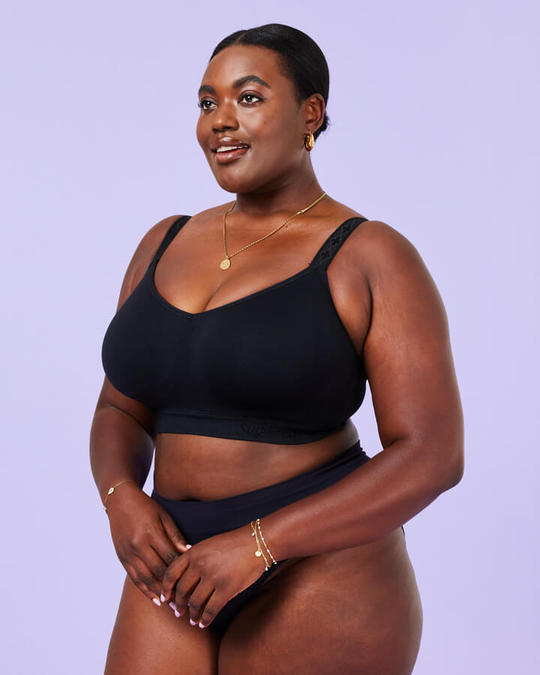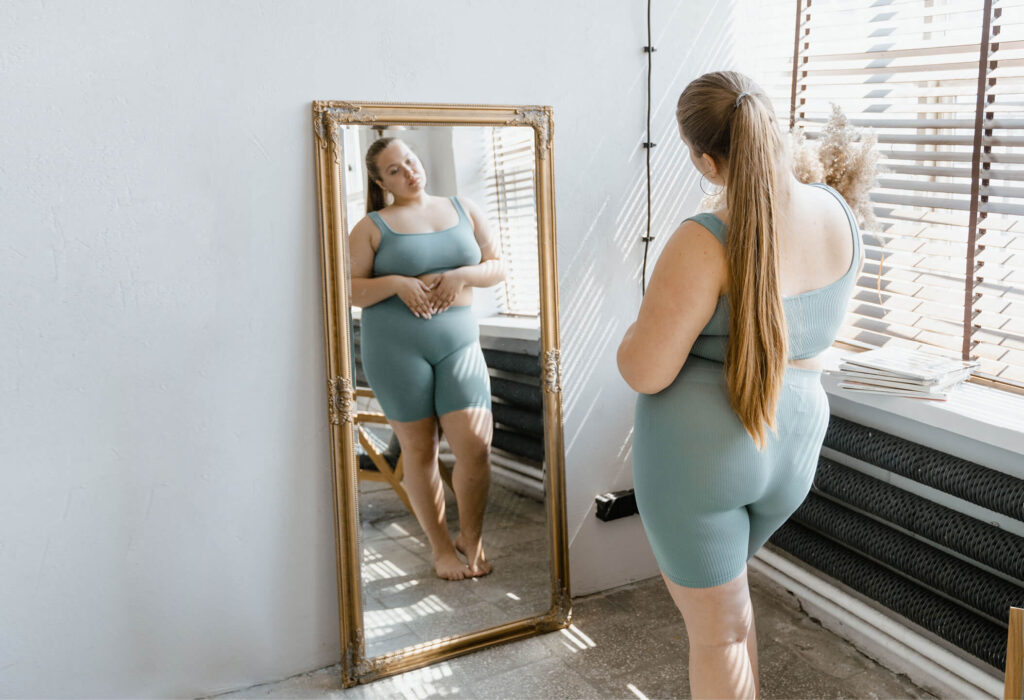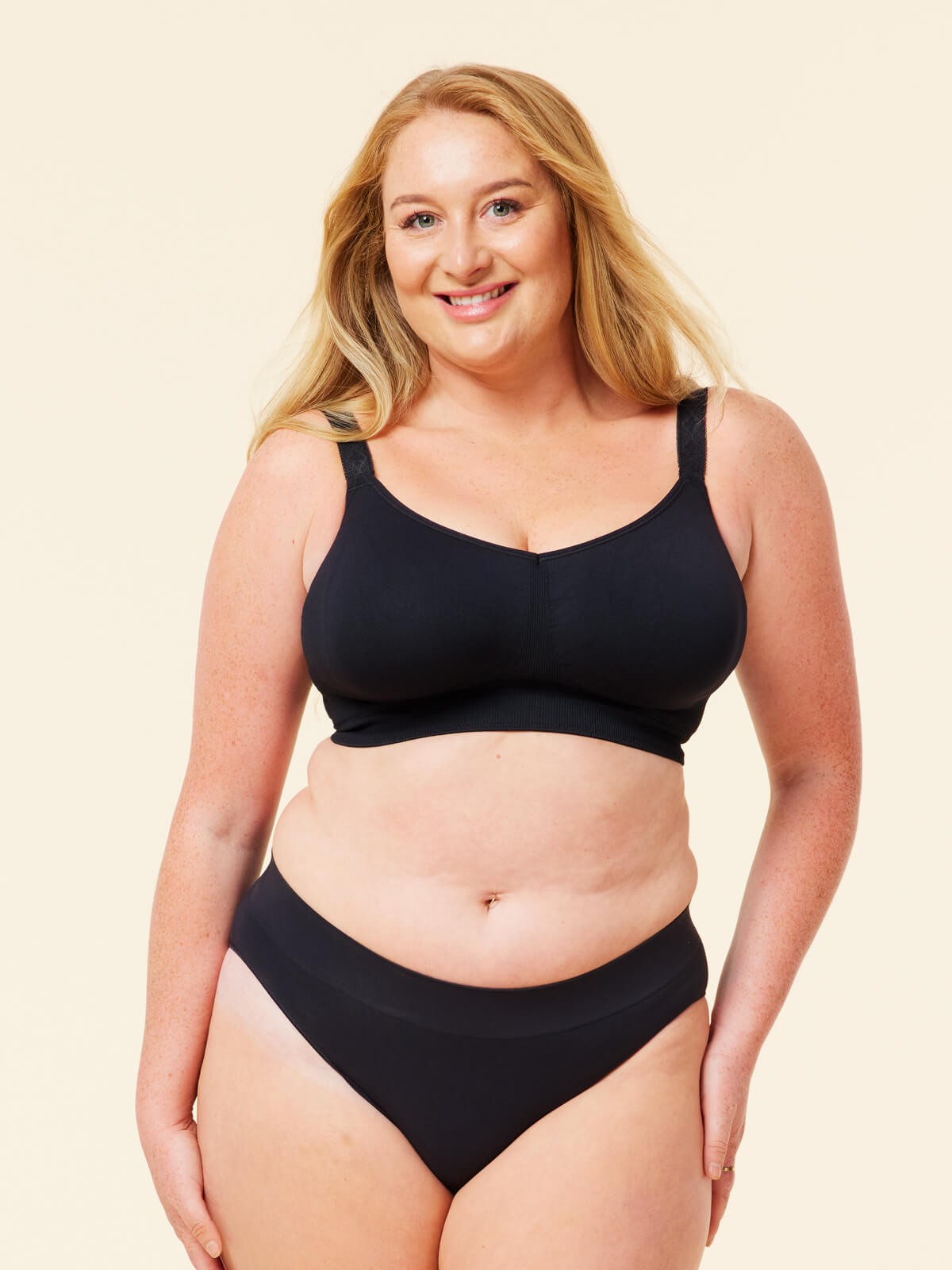results found
IN THIS ARTICLE
You’ve seen it on your paperwork when you leave the doctors office, the numbers and the words that state “normal, overweight, obese” and you’ve cringed seeing these words. These words are so powerful and when referring to the BMI number on your chart – are also such bullsh*t.
BMI is short for Body Mass Index (BMI), and you have probably seen it when visiting your doctor for a checkup since it is most often used as a marker of health status (more on how ludicrous this is later). You might have used this number to register for insurance as well. If you’ve ever seen the BMI chart, heard these terms and wondered what the hell is actually up with these numbers, here’s the scoop:
It only takes into consideration your height and weight
The BMI is an equation that only factors in your height and weight – literally nothing else. It also does not distinguish between muscle mass and body fat which means that many individuals fall into the “overweight” and “obese” category due to higher muscle distributions and many other factors that impact our weight overall.
For example, many celebrities and athletes fall into the “obese” category simply due to their mass muscle percentage even while their body fat registers in at 2%?! Even if you don’t fall into the category of being a celebrity or sports pro, these labels of overweight and obese carry stigma and shame even when they are laughably arbitrary.
It was never created for individuals (or womxn)
The BMI equation was created by a Belgian statistician (noting that he was of European, white descent) to try and assess weight on a population wide level. The formula then became a tool for insurance companies and doctors to use vs further in depth testing so it became adopted as a norm and it is still used today.
In fact, it was specifically designed for men in the research study – and even though an entirely different formula was in place for the female population, the same equation is still used. Not to mention that this puts individuals in the binary roles of “male vs female,” without any consideration for the spectrum of gender expression of the individual.
So this number that you are being “assigned” is comparing all of us to white males, and is clearly a symbol of one of the many ways that racism shows up in our healthcare system.
It leaves out markers that impact health
There are SO many variables that impact one’s health and weight – just a few include: genetics, intergenerational trauma, current lifestyle, environment, access to food/socioeconomic factors and of course, weight stigma.
Contrary to our cultural “training” as young children that teaches us that fat is the worst thing we can be, we now know that weight and health have nothing to do with each other. You cannot tell someone’s health status from their weight, degree of fatness or body frame. In fact, research on weight stigma (pressure to be in a smaller body, lose weight for the motivation of “health”) actually predicts that those who are stigmatized for their weight have a higher BMI, poorer health outcomes and mortality.
Translation: it is not the actual fat that is making people unwell, it is the systems of discrimination and oppression towards those in larger bodies that perpetuates this cycle.
Looking for another way? You need a new outlook, babe! Enter: the Health at Every Size ® (HAES) movement. HAES is a social justice movement that embodies a new paradigm shift away from focusing on weight as a marker as health and rather emphasizes that health exists on a continuum.
HAES acknowledges that health is SO MUCH more than weight, it is physical, spiritual, psychological and that systems of oppression and shame significantly impact health and wellbeing. We’ll be sharing more here about this framework, in the meantime a good place to start is checking out the HAES website, this video on Poodle Science, and buy some bras that fit YOUR amazing body.
–

Jaren Soloff is a Registered Dietitian and International Board Certified Lactation Consultant (IBCLC) who serves as an expert in women’s health. While continuing to practice in the field of eating disorder treatment, Jaren gained additional experience as an IBCLC to fuse her love of nutrition and women’s health.
Now working solely in private practice, Jaren combines her expertise as a skilled nutrition therapist and lactation consultant to support individuals looking to heal their relationship with food and body. FULL CRCL provides evidenced based practices to support women at all stages of the reproductive cycle, from preconception to postpartum. Informed by her own journey and the hundreds of women she has counselled, Jaren’s experience comes full circle to support women in navigating pregnancy, birth and postpartum from a simple and intuitive framework.
WANT MORE SUGAR?
Sign up to our mailing list to get 10% OFF!
Plus you’ll be the first to hear about new releases, sales, promos and so much more when you join the club!
You might also like


















































































